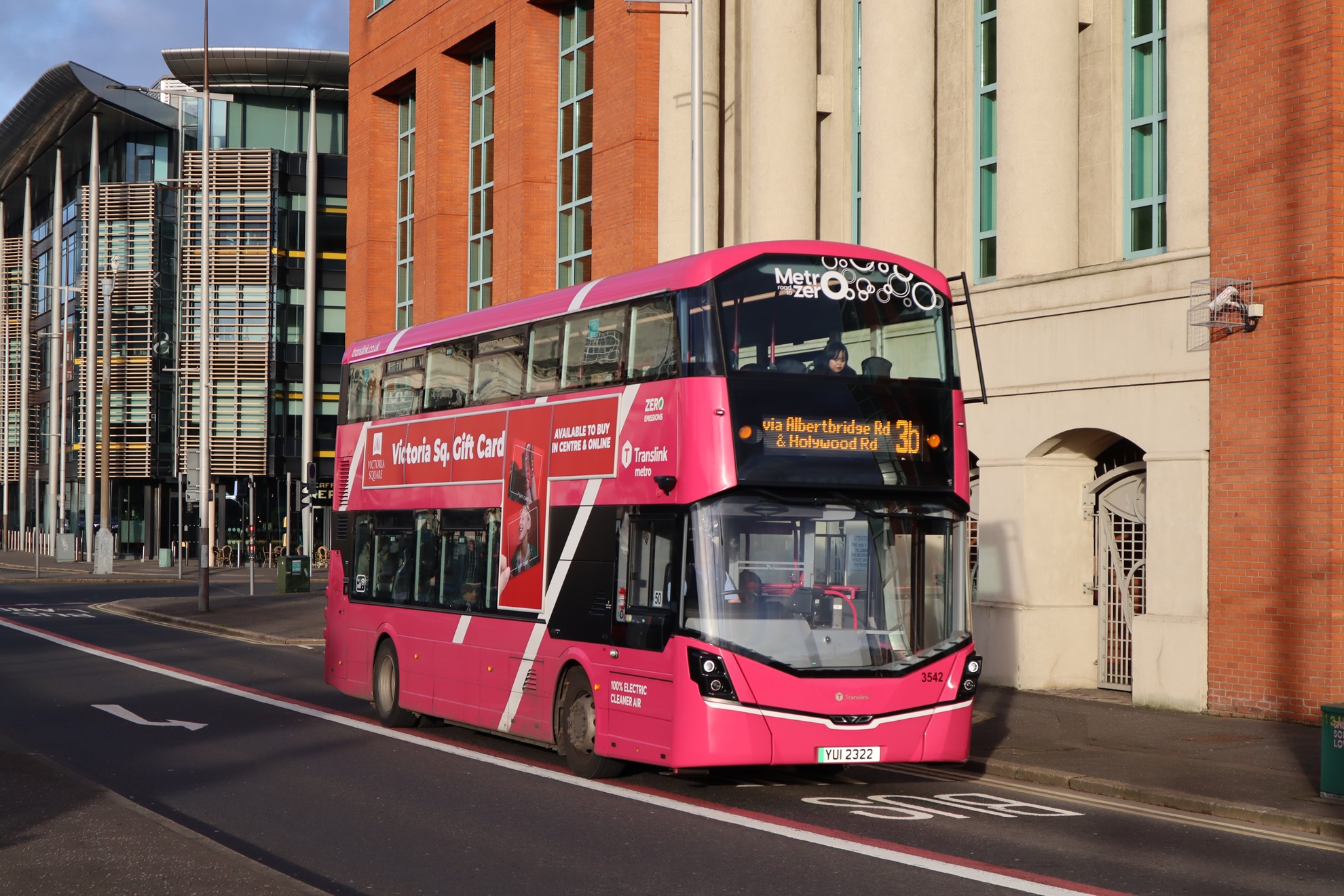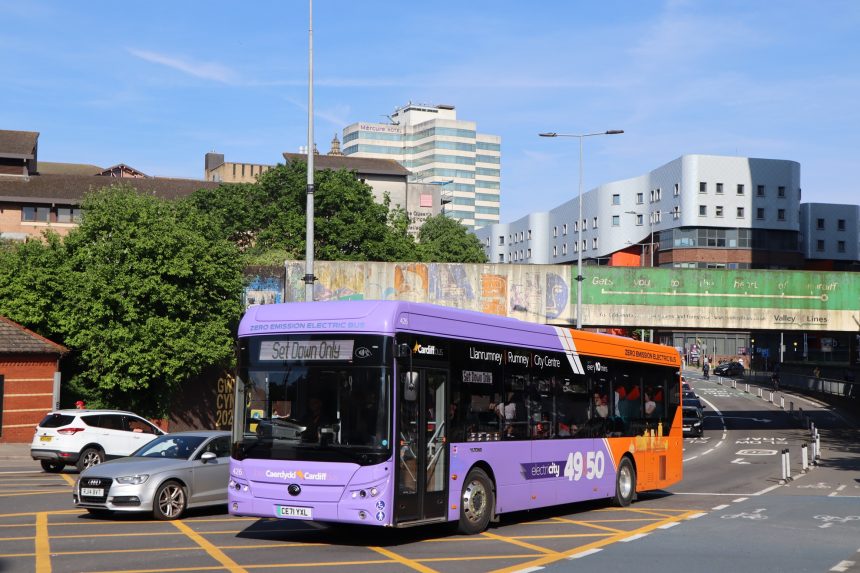Acceleration of bus electrification in the UK is constrained not by vehicle cost, but by policy barriers that undermine potential savings such as inconsistent grants, unfair network charges, and a failure to halt declining passenger numbers, Zenobē has said.
To remedy those problems and speed the transition to battery-electric, the supplier is calling for greater certainty for operators and local authorities on energy costs, government subsidies, and revenue streams.
If the move to zero-emission was to increase pace, Zenobē believes that it would “renew our public transport networks, reduce air pollution in our communities, and reduce costs for operators, local authorities and the government.”
Those points are made in a report published by Zenobē at Euro Bus Expo. Charging forward: How electric bus fleets can energise the UK’s cities puts forward three reforms to tackle current uncertainty:
- Removal of what it calls “punitive” network charges on low-carbon depots that penalise overnight charging of battery-electrics via recently reformed charges and “misalignment” of energy and transport policy
- Moving government support from diesel buses to battery-electric models via reform of BSOG in England and its devolved equivalents
- An increase in bus speeds via priority measures, improved ticketing systems, and other measures.

The electrification specialist says that over a 15-year life, a battery-electric bus delivers a total cost of ownership saving of £120,000 over a diesel where both vehicles are leased, an increased BSOG figure for the electric is in play (see below), and “intermittent” capital subsidy is removed.
Zenobē believes that “we have reached the tipping point for leasing electric vehicles,” noting that up-front purchase of those is often infeasible. Instead, leasing using what the supplier calls “intelligent private and/or public funding” can deliver costs savings from day one while allowing more battery-electric buses to be deployed.
On network charges incurred by battery-electric depots, the report says that those come via the Targeted Charging Review (TCR) of 2023. It links residual transmission network charges for high energy consumers to grid connection capacity.
Those operating centres were “an unintended casualty” of TCR despite not using power at peak times. An exemption or classification change should be provided to remove the resulting charges.
Zenobē Founder Director Steven Meersman has taken aim at TCR, saying that it is “eroding the case for bus electrification by raising costs for operators by over 500%.” He adds that resolving such an issue is imperative to ensure that “the ecologically sustainable solution is also the financially sustainable one.”
Where governments’ support for battery-electric buses is concerned, Zenobē acknowledges the Zero Emission Bus Regional Areas and Scottish Zero Emission Bus schemes. But it says that the competitive ‘feast or famine’ construction of those leaves no long-term clarity and that resulting manufacturing peaks and troughs will “become a vicious cycle.”
Instead, BSOG in England, and similar mechanisms in Scotland and Wales, should be reformed. Under the report’s proposals, that would see support for electric buses reach 50p per mile “within a year” and that for existing diesel buses to Euro VI be tapered to zero by 2032.
“Our analysis indicates that while electric BSOG rates will need to decline towards the end of this period in order to maintain spending at current levels, it will be adequate to drive diesel almost entirely out of the market beyond a few specific long-haul routes,” Zenobē says.
In speeding bus services, the supplier wants a long-term future for Bus Service Improvement Plan money (and devolved equivalents) and prioritisation of buses in road planning, along with a general improvement to the passenger experience.
Zenobē report in full available here.



























